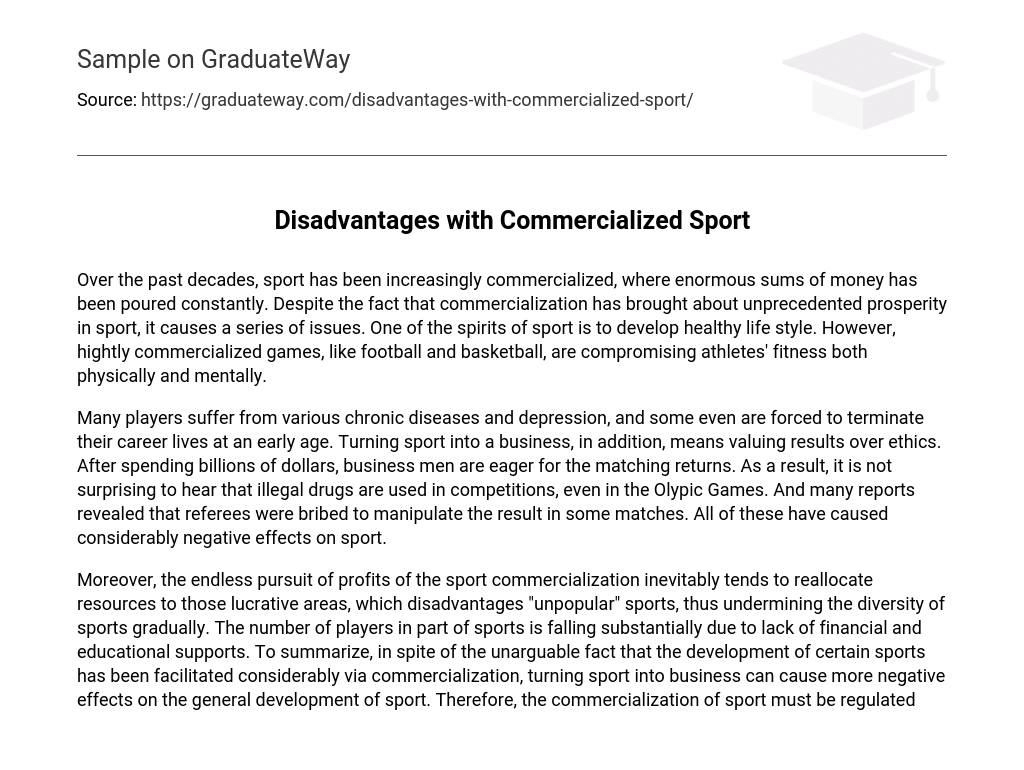Over the past decades, sport has been increasingly commercialized, where enormous sums of money has been poured constantly. Despite the fact that commercialization has brought about unprecedented prosperity in sport, it causes a series of issues. One of the spirits of sport is to develop healthy life style. However, hightly commercialized games, like football and basketball, are compromising athletes’ fitness both physically and mentally.
Many players suffer from various chronic diseases and depression, and some even are forced to terminate their career lives at an early age. Turning sport into a business, in addition, means valuing results over ethics. After spending billions of dollars, business men are eager for the matching returns. As a result, it is not surprising to hear that illegal drugs are used in competitions, even in the Olypic Games. And many reports revealed that referees were bribed to manipulate the result in some matches. All of these have caused considerably negative effects on sport.
Moreover, the endless pursuit of profits of the sport commercialization inevitably tends to reallocate resources to those lucrative areas, which disadvantages “unpopular” sports, thus undermining the diversity of sports gradually. The number of players in part of sports is falling substantially due to lack of financial and educational supports. To summarize, in spite of the unarguable fact that the development of certain sports has been facilitated considerably via commercialization, turning sport into business can cause more negative effects on the general development of sport. Therefore, the commercialization of sport must be regulated.





